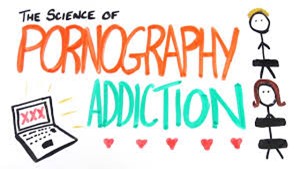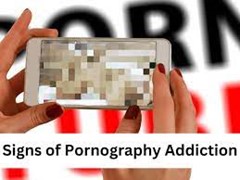Pornography can it be a problem – how and why?
How it can be managed?

Concerns about the use of Pornography are growing exponentially.
With easy instant online access to pornographic content, more and more individuals are experiencing the problems associated with increasingly hardcore images and videos.
Younger and younger children are exploring relationship and sexual parameters using pornography as a guide and as a result are developing increasingly unhelpful beliefs and behaviours around relationships and particularly intimate partner relationships. According to a recent survey, around 12% of Americans are experiencing problems associated with accessing pornography. I suspect the number is much higher and sadly involving younger and younger users.
However, it is important to address pornography as a health issue rather than a character flaw. The user is most often already experiencing feelings of acute shame and guilt so to apply any unhelpful label will make addressing and changing the behaviour more difficult.
Pornography can have severe negative effects on one’s mental & emotional health, our ability to interact with the real world and real people, how we establish and build meaningful relationships and our very sense of self – our spiritual wellbeing.
In this blog post, we will discuss the various impacts of problematic use of pornography, and ways to address and possible manage it.
How can pornography be so problematic?
Problematic use of Pornography often referred to as pornography addiction, can be best seen as compulsive sexual behaviour disorder.
There is currently no medical definition of “Pornography Addiction”.
Experts from around the world are grappling as to how we can best describe and from there, manage the problems that come from the problematic use of pornographic material.
If someone has a pattern of problematic use it is easily recognised.
Users will experience a compulsive desire to view increasing amounts of pornography and often increasingly hardcore material. This is because pornography impacts the dopaminergic system; a part of our limbic system which is designed to reward us for establishing and building helpful/pleasurable behaviours. The immediate access to such graphic imagery over-stimulates this system. They become increasingly de-sensitised to the material being accessed which means, like a drug, users are constantly needing more and more stimulation to achieve it – often referred to as chasing the dragon?

Following is a brief screen which you could use to see if you or someone you know may have a problem:
- Are they/you are looking more often at sexual images on the Internet?
- Are they/you finding that sexual images on the Internet that you used to regard as stimulating now are starting to look tame or ordinary?
- Are their/your thoughts of wanting to look at sexual images on the Internet making it difficult for they/you to concentrate on other matters?
- Are they/you finding that looking at sexual images on the Internet helps you forget your problems?
- Have they/you tried to cut down or stop looking at sexual images on the Internet but have found it difficult to do?
- Has their/your searching for sexual images on the Internet ever caused problems for you at home or at work or possibly with the law?
- Are they/you continuing to search such imagery even though it is causing them/you problems?
- Do they/you find that when they’ve/you’ve finished looking at sex images on the Internet that more time had passed than you had realised?
- Would they/you prefer to masturbate looking at sexual images on the Internet, or with random anonymous strangers than engage in sex with a real partner?
If they/you say yes to 2-3 of these questions, then you may have what could be termed a Hypersexualised dysfunction disorder that could be further classified as mild.
If they/you answer yes to 4-5 of these questions, then the disorder could be classified as moderate.
Answering yes to 6 or more of these questions, may indicate that the disorder could be classified as severe.
What might make people more vulnerable to using pornography problematically?
Often people who’s childhood have experienced as childhood trauma, bullying, relationship stressors, loneliness, boredom, and other distress may try to soothe their distress with the instant gratification that Pornography appears to offer.
For some it may be that there is some aspect of their mental health which makes developing relationships more challenging. Hypersexuality can often be found in those on the autism spectrum. Core symptoms of autism, such as hyposensitivity and hypersensitivity, as well as repetitive behaviors, may also influence sexual behaviors. A 2017 review reported that autistic people may experience hypersexual and paraphillic fantasies more frequently than allistic people.
For some I’ve worked with, the problem has come into being as clients have grappled with substance use disorders; especially use of substances such as cocaine or methamphetamine.
No matter what leads someone to using pornography problematically, pornography is never truly fulfilling and most often leads to such intense feelings of guilt and shame that the user becomes increasingly isolated and their self-image so damaged that living in the real world and relating to real people becomes just too much.

Effects of using pornography problematically?
Pornography can and most often does negatively impact one’s mental & emotional health, our ability to interact with the real world and real people, how we establish and build meaningful relationships and our very sense of self – our spiritual wellbeing. Some of the common effects of problematic use of pornography include:
- Depression and anxiety: users often experience depression and anxiety as they become more isolated and distant from their loved ones.
- Erectile dysfunction: the often-extreme material over stimulates our system which means users may experience to erectile dysfunction as the individual’s brain becomes desensitized to sexual stimuli, and they require more intense stimulation to achieve arousal.
- Reduced sex drive: Ironically, this over stimulation can also lead to reduced sex drive as individuals become more focused on pornography and less able to experience real life relationships and sexual activity with their partner.
- Relationship problems: The above impacts can also lead to significant pressures on real life relationships with partners, parents and peers.
- Diminished sense of self: All of the above serve to further depreciate the user’s view of themselves and can lead to low self-esteem as individuals feel guilty and ashamed about their use of pornography.
- Partners can and most often are also impacted. They can begin to question their own sexuality, sensuality and sex appeal. They can become increasingly suspicious as trust is eroded in the relationship – always wondering what their loved one is doing?
- Some will engage in increasingly problematic relationships – remotely with anonymous strangers. This often means images are shared and therefore posted online where they may be used to manipulate the subject later.
- Some will seek to meet up in person and expose them to potentially compromising situations with people they really don’t know and who may use these encounters to manipulate the victim at some later point.
- With the ‘flavour of the imagery becoming increasingly intense, this can lead to problems with and for employers should users use work provided platforms.
- Using work or personal devices can also come to the attention of legal authorities here or anywhere else in the world which could come back to the user at any time.
What can be done?
Problematic use of Pornography is a behaviour, all behaviours can be managed!
Some of the ways users have reported helpful include:
- Seek professional help: The first step in overcoming problematic use of pornography is to seek professional help. A therapist can help individuals understand the root cause of their compulsion and provide them with the necessary tools to overcome it.
- The therapist will also work with the user to identify their real selves, their needs and identify what is it that the user actually wants from real life. Using these, they can them build a plan to move towards this realistic view of self and what they want, using their own values and needs as an effective compass to frame and challenge decision making.
- Install porn-blocking software: Installing porn-blocking software can help individuals limit their access to pornographic content and prevent them from relapsing.
- Practice mindfulness: Practicing mindfulness can help individuals become more aware of their thoughts and emotions and help them manage their cravings for pornography. These can be lined up against what it is the individual actually wants, what their real needs are and who they are.
- Develop healthy habits: Developing healthy habits such as regular exercise, healthy eating, and getting enough sleep can help individuals manage their stress and reduce their cravings for pornography.
- Build a support network: Building a support network of friends and family members can provide individuals with the necessary support and encouragement to overcome their addiction.
As an example, following is a rough outline of what a programme with me might include.
Using contemporary best practice modalities including:
- Cognitive Behaviour Therapy
- Dialectical behaviour therapy
- Motivational Interviewing
- The Good Lives Model
We would develop a plan for our work together and specifically for you to achieve a better life for yourself and those you care about.
There are some fundamental components of an effective plan and some of these include:
- Reflecting on your current well-being and initial consideration of what you could do to build it, should you wish to do so?
- Considering:
- Your vision of a better life for you.
- The skills and resources you bring.
- Identifying what may make it more challenging for you to use your skills and resources to achieve your better life?
- Considering how you could build you capacity and skills as well as manage challenges so you can intentionally make progress towards your better life.
- Developing a plan to build your capacity.
- Building relationships and support that will strengthen your capacity to achieve your better life.
- Practice new skills so they become helpful habits.
- Review and reflect on what is working and what could be improved.
- Build process of life-long safe reflection and revision of your plan towards your better life
We will also use specific strategies to manage those challenges you face as and when you are ready to look at these.
Please notice most of our time would be focused on achieving what you want. We would use your skills and resources to develop and build practical management techniques to address and manage challenges you be facing, or which may later come up. Whilst it is helpful to have a detailed understanding of the problem, investing too much time on that detracts from the time and energy we will need to identify and implement solutions!
Conclusion
Problematic use of pornography is a growing concern in today’s society, and it can have severe negative effects on an individual’s mental & emotional health, our ability to interact with the real world and real people, how we establish and build meaningful relationships and our very sense of self – our spiritual wellbeing.

It is, however, eminently manageable!
Call me today to discuss how!

